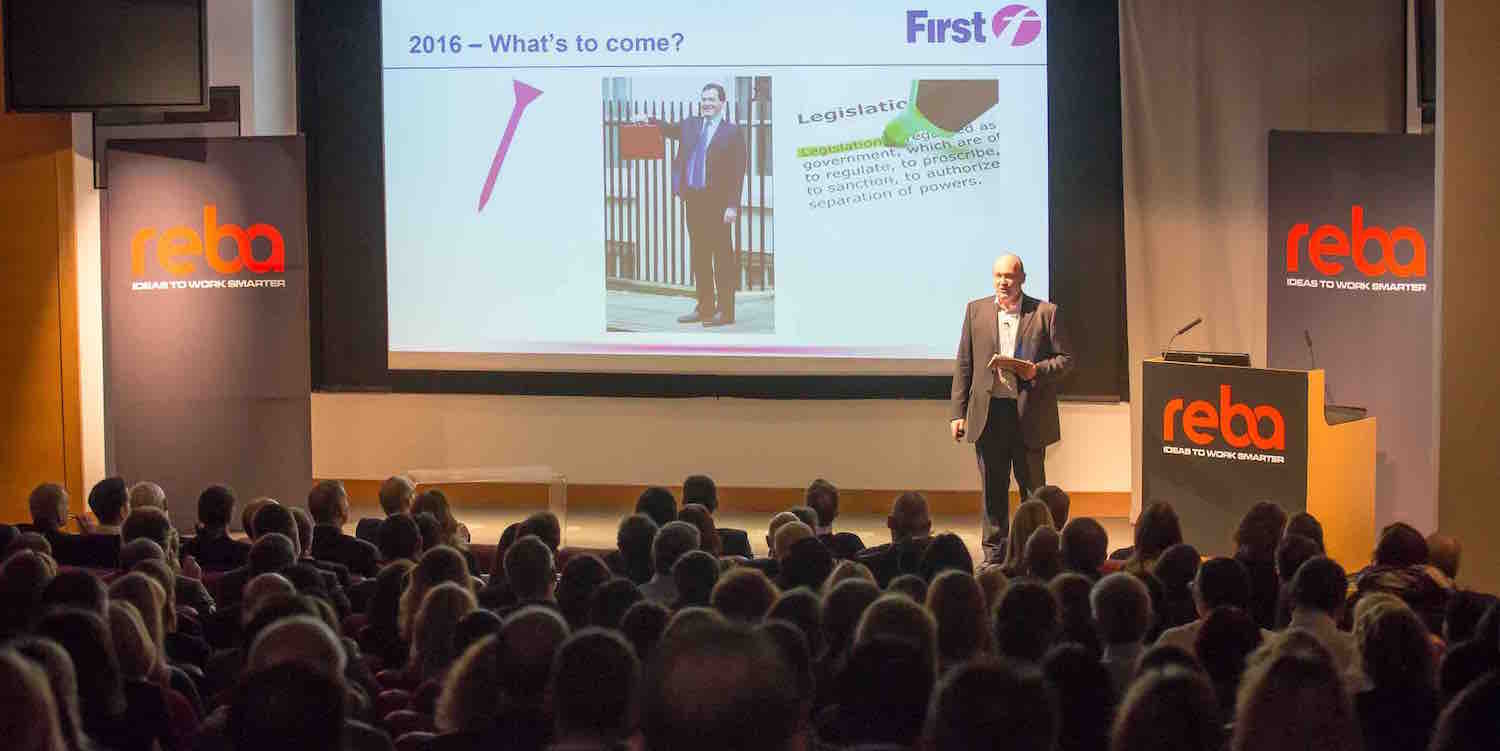REBA New Year Lectures: The soul and skills of reward and benefits professionals

HR has of course throughout its history been subject to regular bouts of serious soul-searching and angst, ever since early management thinker Peter Drucker’s famous allegations 60 years ago in The Practice of Management that the then personnel function lacked purpose and impact and was heavily reliant on evidence-free fashions and fads. And writing a PhD in reward strategy alongside of the day job for the past year or so has certainly made me question the purpose and value of our roles and contribution, as well as at times my sanity.
When I came into the function in the early 1980’s the CIPD’s textbook for our area was Angela Bowey and Tom Lupton’s A Handbook of Pay Administration, and as we heard from all of the speakers at the event, auto-enrolment renewal and a raft of new regulatory compliance and tax requirements certainly mean that despite the fancy HRIT systems, the admin still eats up far too much of the function’s time. We all still play that role of ‘clerk of works’ and procedural controller that was there alongside the welfare and wellbeing function at the very origins of the profession in the late Victorian era.
But by the time I wrote the preface to Armstrong and Murlis 2007 edition of the CIPD’s by then even weightier tome, we were in our new business-impacting and board-influencing total rewards clothes, brandishing their handbook of Strategic Remuneration, playing the roles outlined in Dave Ulrich HR Champions (1998), of strategic business partners and deep and influential technical experts. MBA’s were advocated for aspiring HR and reward directors, and technical depth through the CIPD’s advanced certificate in reward management which I oversaw the introduction of at that time, alongside of the traditional actuarial technical and professional qualifications
John Chilman’s excellent opening session at the REBA New Year Lectures (pictured above) certainly illustrated the strategic business impact and risks we are dealing with in addressing our 2016 agenda, with Chancellor George Osborne’s self-admitted 'dangerous cocktail' of economic conditions driving up pension deficits and financial risks.
There are further worries at the removal of at least some of the tax benefits of pension contributions and flex plans. And, as PwC’s John Harding elaborated in his talk, the impending National Living Wage will add an immediate 7% to minimum wage rates and costs which, by the end of this parliament, will rise to estimated average of 6 to 7 times the initial hit.
With serious fines and compulsory 'naming and shaming' for transgressors of this and the soon-to-be-announced gender pay reporting requirements, surely our grateful business leaders will soon be adding to the pay premium we already attract over equivalent HR generalists of some 15%.

But hang on a minute, what was John Chilman doing, saying that we can’t plan strategically any more, but instead just wait to tactically react to the outcomes of the Chancellor’s spring Budget? He said he isn’t able to allocate his time to the areas and activities that would add most value to FirstGroup because the tax changes focus large proportions of his time on dealing with pension-capped executives. Doesn’t sound very strategic, more tactical and reactive.
The excellent pre-lunch expert panel discussion illustrated that HR and reward consultancy and advisory service firms have not, it turns out, merged with the business strategists and experts in organisational change, but instead been taken over wholesale by the insurance industry, with the risk and cost managing actuaries, accountants and insurance experts literally ‘manning’ the panel.
The psychologists and motivation experts were noticeably absent for most of the day, (although the rising emphasis on health and well-being in our work once again would have gladdened the hearts of the CIPD’s forbears and profession’s founders in the then Institute of Welfare Workers), bar the plea for better employee understanding and data from Damian Stancombe of Barnett Waddingham, until Intercontinental Hotel Group's Nicos Nicolaides' rousing farewell.
An ex-reward consultant and now full-time lecturer and researcher, the Judge Institute’s Jonathan Trevor (2010) argues therefore that HR and reward professionals should abandon their strategic ambitions as a bad dose of Emperor’s new clothes, and return to our administrative and risk-managing bunkers.
But business strategy has changed too, it’s no longer about grandiose long-term plans set by executives and a few experts. As the Personal Group’s CEO Mark Scanlon explained to us, in these uncertain and talent-short times, in the new knowledge economy, he needs all of his employees engaging with the whole purpose and vision of the company, what Professor Lynda Grattan calls an evolving, values, meaning and commitment-based ‘living strategy’.

This takes HR and reward professionals into the whole area of purpose, values and ethics, a potential role as culture-champions and the conscience of the company, but also an area of difficult moral questions. How well do the CIPD and actuarial qualifications prepare us for those? A recent CIPD survey (2015) found that half of us admitted to compromising our principles in our work due to 'pressure' from business leaders. Is the low-cost-driven and flexible hours-based reward and employment approach of a Sports Direct or an Amazon a sensible business alternative. Or is it as some allege, an unacceptable and exploitative reward strategy that we should be blowing the whistle on? The CIPD seems conveniently agnostic on the issue.
No simple answers then, but we shouldn’t be looking to boiler-plate supposed universal best practice anyway if we are true reward strategists, as Michael Armstrong and I argue in Strategic Reward (2006), but instead searching for “best fit”, to suit what Professors Stephen Perkins and Geoff White highlight in their latest forthcoming CIPD reward textbook as Reward Management: Consequences and Contexts (2016).
There was certainly loads of great information and ideas on Thursday to help us get that fit. And perhaps REBA too can in future help us all to develop that optimum mix of skills, combining purpose and profit motives, tactical and strategic actions, technical and process abilities which will underpin the brilliant, value-adding and values-driven reward and benefits professionals of the future.
Duncan Brown is head of HR consultancy at the Institute for Employment Studies




